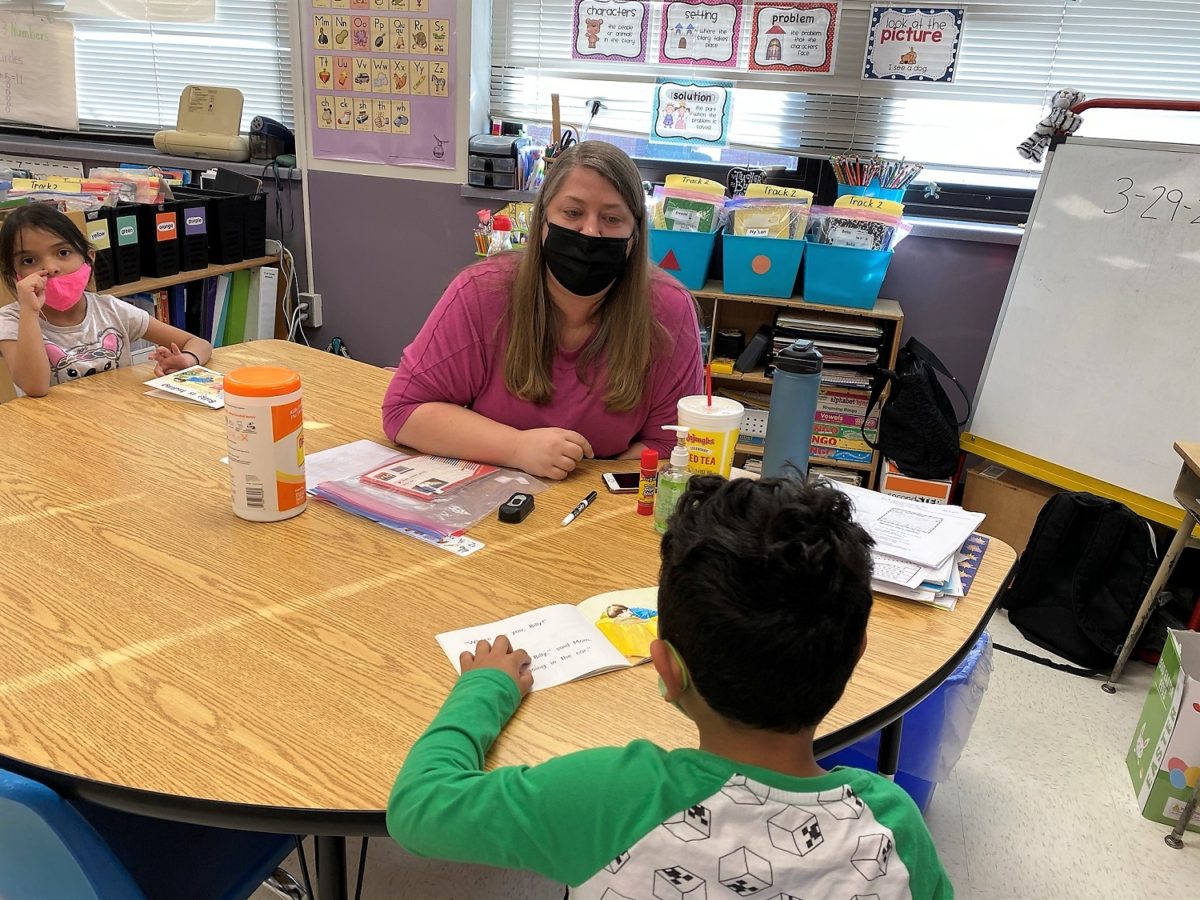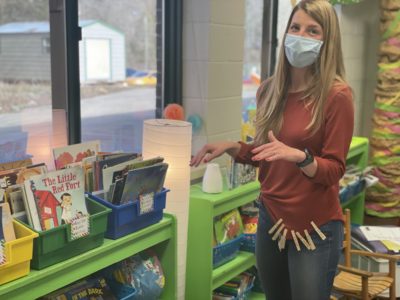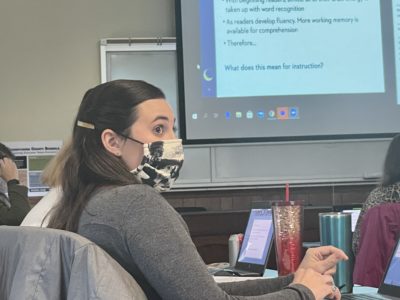
Eight business leaders continued a call from the private sector for expanding NC Pre-K and aligning early grade literacy instruction with the “science of reading” at a press conference on Wednesday.
“As we look past recovery from the pandemic and toward a strong, sustainable economy – with an eye on equal opportunity for every North Carolinian – we must increase early literacy by implementing and expanding what we know works,” SAS CEO Jim Goodnight said. “North Carolina can be a national model for increasing third-grade reading proficiency if we move forward on the policy recommendations we have outlined today.”
The policy recommendations echo the group’s 2017 report, “Why Reading Matters and What To Do About It.” They made a similar call during a North Carolina Chamber of Commerce event in August.
“In my world, skilled, blue collar jobs today require reading proficiency, both in terms of analyzing and understanding the data associated with the work they’re doing, and also just in communication,” said Don Flow, CEO of Flow Automotive Companies. “We’re going to have a massive shortage for skilled, blue collar workers throughout North Carolina if we don’t make large commitments to change this.”
The panelists stated their support for the Excellent Public Schools Act of 2021, which became law last week. Among other things, the law requires that the Department of Public Instruction: (1) provide training for NC Pre-K and elementary school teachers in the science of reading, (2) ensure that all children in NC Pre-K receive a formative assessment at the conclusion of prekindergarten, and (3) ensure that the formative assessment be given to that child’s kindergarten teacher for the next year.
The business leaders also called on the governor and General Assembly to adequately fund NC Pre-K expansion and science of reading training.
“In the weeks and months ahead, the General Assembly and Gov. Cooper will need continued resolve to prioritize significant recurring funding for the long-term success of these literacy priorities,” Flow said.
State Superintendent of Public Instruction Catherine Truitt, who joined business leaders at the press event, said there is a direct correlation between third-grade reading proficiency and postsecondary success. She said improving third-grade reading proficiency is related to the recommendations made in the Leandro case.
“This is very much tied to the Leandro recommendations,” Truitt said. “And I think these gentlemen have made it very clear that the investment necessary — not only to start the training for teachers but to invest over time in that training for pre-K through fifth grade teachers, as well as our administrators and coaches, is necessary.”
The business leaders speaking at the event were:
- Jim Goodnight, CEO of SAS
- Darius Adamczyk, Chairman and CEO of Honeywell
- Nick Ellis, President of SEPI Inc.
- Don Flow, CEO of Flow Automotive Companies
- Dale Jenkins, CEO of Curi
- Kelly King, Chairman and CEO of Truist Financial
- Tom Nelson, CEO and President of National Gypsum
- Fred Whitfield, President and Vice Chairman of Hornets Sports & Entertainment
These business leaders were joined by Truitt, State Board of Education Chair Eric Davis, and UNC System Senior Vice President for Strategy and Policy Andrew Kelly.
“This is one area where all North Carolinians need to band together for our future success and the well-being of all of our children,” Davis said. “And we’re off to a good start. We’ve got a lot of work to do, but we’re going to get it done. And we’re going to build on this partnership, and we’re going to look back and say that this is a day when North Carolina stepped up and became a leader.”
Recommended reading



